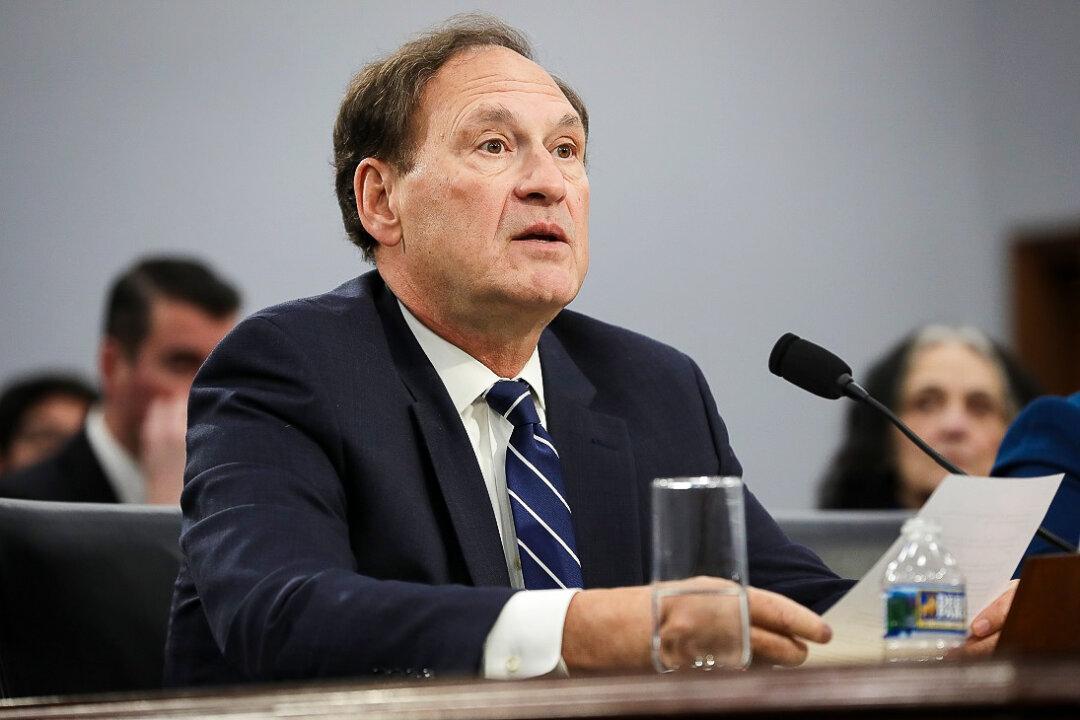Supreme Court Justice Samuel Alito recently warned that the dismissal of jurors in a case due to their conservative views on marriage and relationships “exemplifies the danger” he foresaw when the court legalized same-sex marriage in 2015.
Justice Alito’s criticism came as part of a lawsuit over two prospective jurors who were dismissed from a civil trial in Missouri after admitting that they believe same-sex relations are a sin based on their religious faith.





